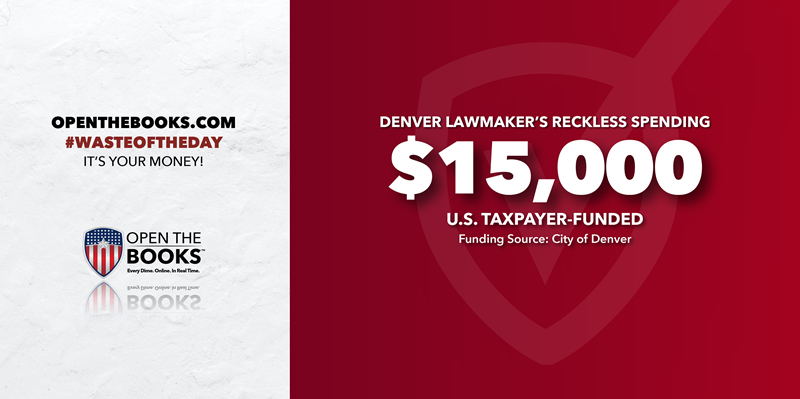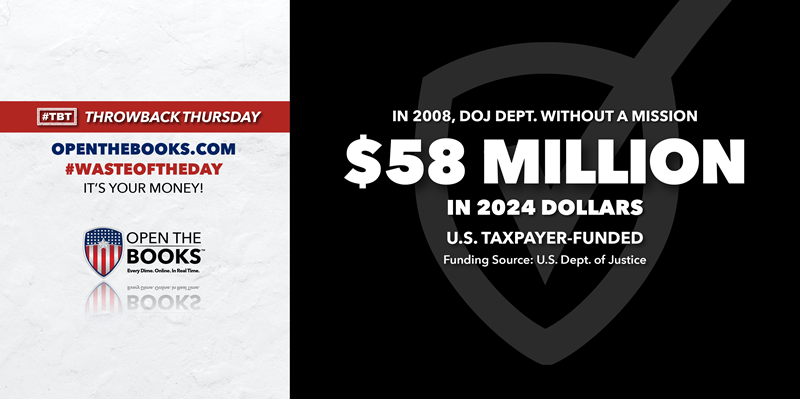
San Francisco Nonprofit Used Money On Gifts And Raises
April 29, 2024

Topline: A San Francisco nonprofit showed “gross fiscal noncompliance” and “wasteful practices” after receiving $240 million in grants, loans and subsidies from the city, according to a new audit report.
Key facts: HomeRise helps homeless Californians find affordable housing, but many of its issues stemmed from paying its own employees.
The nonprofit borrowed $4.5 million from its own operating account to pay employees. $2.1 million of that had not been returned as of last August, the city controller’s audit found.
HomeRise also gave staff surprise bonuses totaling $200,000, including “signing bonuses” for employees who had been working for 13 years. Other employees received raises of up to $87,000 over a span of nine months.
The group also spent $24,000 of city money on items that were not in its grant agreement, such as lunches and gifts for staff.
That’s partly because 15% of company credit cards did not require approval for purchases. Another 18% of credit cards allowed cardholders themselves to approve their own purchases.
Auditors claim that HomeRise’s year-end meetings were “largely focused on finding corporate expenses that could be paid for with remaining City grant funds.”
When HomeRise did spend its grant money properly, it often failed to track where the money went and could not present accurate inventory records to auditors.
Almost all of the nonprofit’s 200 employees had access to its financial data, which auditors said increases the risk of fraud and theft.
Meanwhile, HomeRise failed to rent out all of its property and had a vacancy rate of 14.6%, which auditors say caused a $6.3 million revenue loss over four years. That contributed to thousands of dollars in late fees when the company missed a $1.2 million payment by over 90 days last year.
The audit recommends that San Francisco strengthens its oversight of HomeRise but does not cut its funding, since the nonprofit serves a “vital function.”
Supporting quote: In its response to the report, HomeRise said the audit “suffers from deep flaws” and that many of the issues have already been corrected.
“Many of the findings in the report, are, however, factually incorrect, and others are misleading by the lack of relevant context,” HomeRise CEO Janet Jackson wrote. “The report contains gross misstatements … manifesting a complete lack of understanding of the responsibilities of a non-profit organization’s all-volunteer board.”
Summary: It’s unclear exactly how much of the $240 million grants, loans and subsidies was misused, but what is clear is that this company should never have been trusted with public funds.
Millions Spent on Shoddy Security At Statue of Liberty
April 30, 2024

Topline: The Statue of Liberty is supposed to be a symbol of democracy and freedom, but a new inspector general report claims that millions of dollars of taxpayer money are being wasted at the base of the monument.
The National Park Service wrote a $43.9 million contract for security at the Statue of Liberty, but poor oversight led to an “increased risk to public safety and to the safety of the site itself,” according to the report.
Key facts: Universal Protection Services provides 110 unarmed guards for the Statue of Liberty and Ellis Island, but auditors say many of them are violating their contract.
On-site auditors separately noticed two security guards watching sports games on their cell phones when they were supposed to be screening visitors to the Statue of Liberty for firearms and explosives.
The security contract prohibits guards from using cell phones, but there was no evidence anyone had ever been disciplined for doing so.
Some employees also failed to return their Department of the Interior ID cards after leaving the security company; 17 of them could not be found. The ID cards are “sensitive assets” and the contract requires them to be returned.
Universal Protection Services’ contract also requires them to use an electronic timekeeping system, but the system was never installed. Instead, employees punched in and out by signing their name with a pen.
The inspector general found that some timesheets were lost or had errors. In a random sample, 42% of the timesheets were not approved correctly — representing almost $938,000 in salary payments that auditors say may have been inaccurate.
Another employee invoiced the government for $32,000 of work but never filled out their timesheet.
The security company also could not show records that its employees had been drug tested or completed required training, even though auditors gave two months’ notice that they would inspect those files.
The contract is paid on a yearly basis, so only $5.6 million had actually been spent as of September 2022.
Summary: Until Universal Protection Services makes substantive changes, all $43.9 million is likely to be spent ineffectively. The company is not guaranteed to stay on for their full four-year contract with the National Park Service, and perhaps they shouldn’t.
Denver Councilwoman Off the Hook for Wasteful Spending
May 1, 2024

Topline: The City of Denver is considering revising its ethics code after a councilwoman’s spending spree of over $15,000 was ruled “reckless” but not a “technical violation” of the law, according to Denverite.
Key facts: City Councilwoman Flor Alvidrez was under investigation by the Denver Board of Ethics for a complaint filed in December.
The complaint, which Alvidrez did not dispute, said that she paid her ex-husband $4,234 from her office budget to build a float for a Halloween parade despite already paying $10,000 to buy a float from a Denver nonprofit.
Alvidrez also spent $300 on flight upgrades during a trip to Chile, which the complaint argued was illegal.
The news outlet Denverite found a receipt for sangria from the councilwoman’s office, but she said she was unaware of it. City charge cards cannot be used to purchase alcohol.
Staff members also claimed that Alvidrez yelled at them when they tried to avoid using her office budget on the questionable items.
The ethics board ruled the Halloween floats were not a conflict of interest and did not punish Alvidrez for any of the charges because she reimbursed the city controller for all her odd purchases.
Board members also called for “potential updates” to the ethics code, though specifics have not been released.
Supporting quote: In her written response to the complaint, Alvidrez argued that she was not aware of Denver’s spending protocols.
“I wanted to begin by sharing I recently completed the [Ethics] and Public Accountability course,” she wrote. “I was never made aware there was such a training and found it very valuable.”
She also insinuated that her staff members reported her spending because she refused to give them bonuses or extra time off during Christmas.
Critical quote: Ethics board member Ray Gradale said, “The Board of Ethics has limited scope and is an advisory body without authority to impose penalty, but the City Council member’s actions here in this case do appear to raise legitimate questions and concerns related to a pattern of apparent reckless use of taxpayer funds.”
Background: Alvidrez first took office last July. All four of her aides quit in January after filing human resources complaints over Alvidrez’s alleged “bullying,” though it wasn’t serious enough to be investigated, Denverite reported.
Alvidrez earned $51,000 for six months of work last year, according to records at OpenTheBooks.com. Other council members earned just over $100,000 for the full year.
That’s perhaps not an excessive burden on taxpayers given that other Denver employees are making up to $382,000.
Summary: The lesson here: Ignorance of the law is no excuse, unless you are a lawmaker.
Throwback Thursday: DOJ Department Takes Millions of Funds Before Closing
May 2, 2024

Throwback Thursday!
Topline: The now defunct National Drug Intelligence Center received a $39 million budget from Congress in 2008, years after officials across Washington had already identified the agency as a complete waste of money.
That’s according to the “Wastebook” reporting published by the late U.S. Senator Dr. Tom Coburn. For years, these reports shined a white-hot spotlight on federal frauds and taxpayer abuses.
Coburn, the legendary U.S. Senator from Oklahoma, earned the nickname "Dr. No" by stopping thousands of pork-barrel projects using the Senate rules. He included projects that he couldn't stop in his oversight reports.
Coburn's Wastebook 2008 included 65 examples of outrageous spending worth more than $1.3 billion, including the center’s excessive budget — which is worth $57.7 million in today’s money.
Key facts: The center operated as part of the Department of Justice from 1993 to 2012 to gather intelligence on drug trafficking groups so other federal agencies could apprehend them.
Many officials thought the center was pointless even when it was first conceptualized under President George H.W. Bush because it would duplicate the efforts of other drug agencies.
But former Congressman John Murtha earmarked money in a defense spending bill to create the center in Johnstown, Penn., bringing 400 jobs to his home district at the expense of federal funds.
One official told U.S. News & World Report that the National Drug Intelligence Center had to “search for a mission” and got “nothing” out of its roughly $30 million annual budget.
Things got worse once Mike Horn took over as director in 1999. He inexplicably tried to turn the center into an international agency, spending $164,000 over four years so he and his assistant could travel to Hong Kong, London and Vienna, allegedly to promote new intelligence software.
Horn wasn’t fired until 2004, when the deputy attorney general found out the software did not actually exist!
Between 1993 and 2005 the National Drug Intelligence Center cost taxpayers over $350 million, according to U.S. News & World Report.
President George W. Bush tried to shut down the agency in 2005 by cutting its budget to $17 million to fund its closure. It didn’t work; Congress gave the department $39 million instead.
The funding stayed the same when Coburn called out the agency in 2008, and the center increased its budget to $44 million in 2009 with help from Murtha.
Murtha died in 2010, and the agency closed not long after with no one left in Congress to champion its purpose.
Summary: At least the federal government is sometimes transparent about its waste: the NDIC’s website is still online, with a reminder that it hasn’t been updated in 12 years.
Federal Government Loses Up to $521 Billion to Fraud Annually
May 3, 2024

Topline: The federal government loses between $233 billion and $521 billion to fraud every year, according to a new study from the Government Accountability Office.
Key facts: The fraud losses represent 3 to 7 percent of the $40 trillion the federal government obligated from 2018 to 2022, a ratio the GAO says is comparable to other large governments like the U.K.
The dollar figure includes only crimes that cause the government to lose money it already has — not tax fraud or other ways the government loses potential revenue.
It does include over $100 billion lost to unemployment insurance fraud and $200 billion in fraudulent business loans from the Small Business Administration during the pandemic.
The lowest estimate, $233 billion, is still larger than the 2022 budget of all but eight federal agencies.
Only $4.41 billion to $7.31 billion was reported as “confirmed fraud” each year with an official court ruling. The rest was settled out of court or, more likely, never recouped at all.
Some of the biggest risk factors for fraud are expanding government programs or adding new ones, allowing state governments to control payments, and relying on officials with limited training or experience, the GAO wrote.
The report does not necessarily predict how much will be lost to fraud in the future.
Background: The federal government arguably does a poor job of getting money back once it’s lost to fraud.
The Justice Department announced in April that it recovered only $1.4 billion of money stolen during the pandemic, less than 1% of the total amount. OpenTheBooks contributed to a report in the Washington Times detailing the process, explaining that tens of thousands of businesses on the Treasury’s “Do Not Pay” list received loans anyway.
Critical quote: The Office of Management and Budget said the GAO report was “misleading” and will “create confusion” because it relies on projections and estimates and not just hard data.
Even the GAO admitted “we cannot eliminate the possibility that the actual amount of fraud could be outside of the range of our estimate.”
The #WasteOfTheDay is presented by the forensic auditors at OpenTheBooks.com.